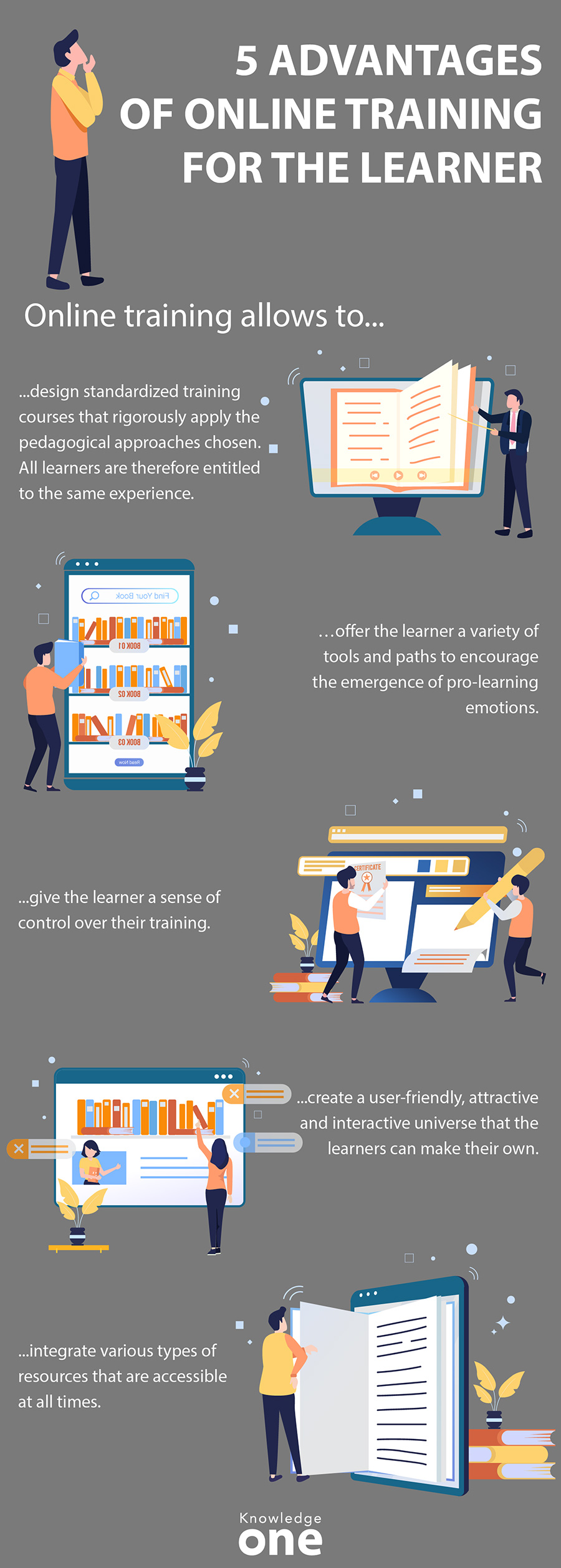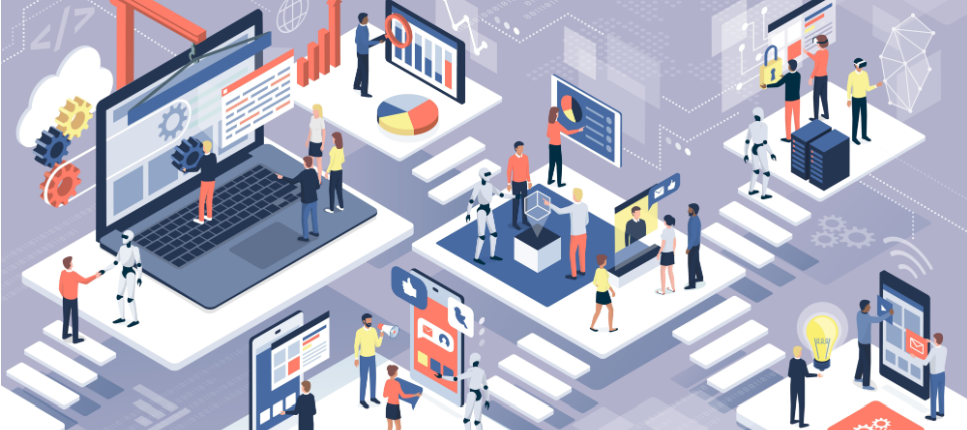Learners who had not yet experienced elearning mostly had the opportunity to do so during the COVID-19 pandemic. However, in many cases, they were provided with video lectures rather than actual online education designed for this purpose. It was natural that learners would remember the loss of human contact, characteristic of a face-to-face course in such a context. However, since this is a limited perception of online education and this learning mode is here to stay, it is desirable to know some of its advantages. Here are five of them!

Online training allows to…
- …design standardized training courses that rigorously apply the pedagogical approaches chosen. All learners are therefore entitled to the same experience.
- …offer the learner various tools and paths to encourage the emergence of pro-learning emotions.
- …give the learner a sense of control over their training.
- …create a user-friendly, attractive and interactive universe that the learners can make their own.
- …integrate various types of resources that are accessible at all times.
Related articles:
- The importance of emotions in learning
- 4 emotions of learning
- Mini glossary of technology in learning
- Mini Glossary of Elearning
- At the very heart of the feeling of personal effectiveness
- The Learner and The Feeling of Self-Efficacy
- 3 Benefits of Intelligent Adaptive Learning for The Learner
- 3 Benefits of Intelligent Adaptive Learning for the Company
- Is Having Fun in Higher Education the Way Forward?
- Adult Learners and Play: 5 Research Findings
- Gamification in 3 questions
- Online training in empathic mode
- Does a sense of community matter in online training?
- 12 tips for adult-friendly online training
- 7 principles of 21st-century learning and elearning
- 4 challenges for education in the digital revolution era
- 5 musts for motivation in online learning
- 8 key elements of learner engagement
- [Case Study] Learning Old English through a gamified experience
Author:
Catherine Meilleur
Creative Content Writer @KnowledgeOne. Questioner of questions. Hyperflexible stubborn. Contemplative yogi.
Catherine Meilleur has over 15 years of experience in research and writing. Having worked as a journalist and educational designer, she is interested in everything related to learning: from educational psychology to neuroscience, and the latest innovations that can serve learners, such as virtual and augmented reality. She is also passionate about issues related to the future of education at a time when a real revolution is taking place, propelled by digital technology and artificial intelligence.







Leave A Comment